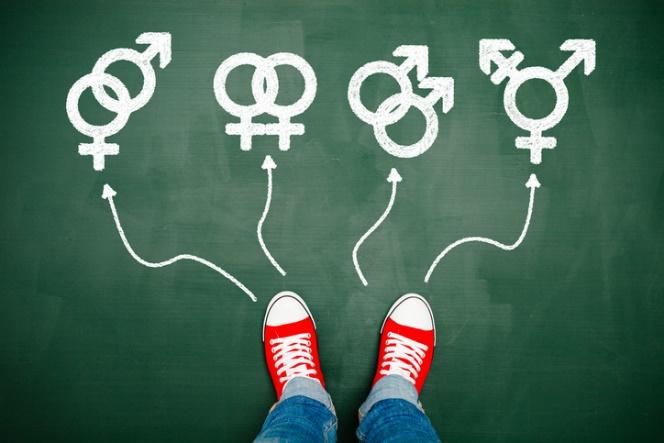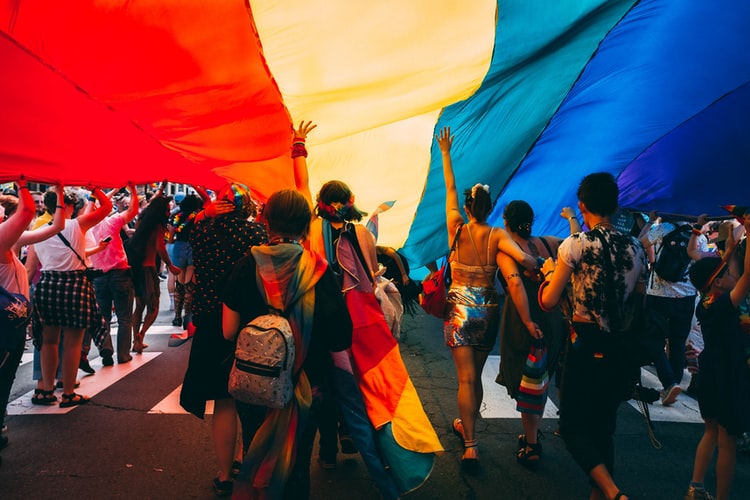Sexuality
Sexuality is not about who you have sex with, or how often you have it. Sexuality is about your sexual feelings, thoughts, attractions and behaviours towards other people. You can find other people physically, sexually or emotionally attractive, and all those things are a part of your sexuality.
Our sexuality and gender can form a big part of our identity. Those who identify as LGBTQ+ may be gay, lesbian, bisexual, transsexual, pansexual, asexual, queer, non-binary or questioning (or, may define their gender and sexuality in different ways). They can be seen as ‘different’, facing discrimination, bullying and a lack of understanding.
While things in society are slowly moving forward in terms of acceptance, we still have a long way to go. Incredibly, the World Health Organisation only removed ‘homosexuality’ as a formal psychiatric diagnosis in 1992.
The fact is, being LGBTQ+ does not lead to mental health problems dealing with other people’s adverse reactions does. Because of this, those who don’t identify as heterosexual are more likely to experience mental health problems. Here we’ll explore sexuality and mental health in more detail, where to find support and coming out concerns.

Sexuality and mental health
LGBTQ+ people can be at a greater risk of developing a mental health condition than those in the wider population. The reasons for this are complex and not entirely understood, however, most mental health problems experienced can be linked to discrimination, bullying, homophobia, biphobia or transphobia.

If you identify as LGBTQ+ and you’re struggling with your mental health, know that you’re not alone. You may be particularly prone to:
Depression – when you experience a low mood for a long period of time.
Anxiety – when you feel especially anxious or worried for long periods of time or at a high intensity.
Self-harm – when you hurt yourself on purpose to cope with difficult emotions.
Suicidal thoughts – when you feel very low and as if there is no way out.
You may experience rejection from those around you, including friends, family and work colleagues. Understandably, this can have a big impact on your sense of self-worth and confidence. You may feel the need to hide this part of yourself from others, and this can be damaging in itself.

Some people may find they turn to drugs to help them cope with difficult emotions. If you’re worried about the way you’re using alcohol or drugs, your doctor, a counsellor or an addiction helpline can offer support.
There are hidden covert messages in the media about what it means to be ‘normal’ which in some way reinforces the message that being different is not acceptable. The notion of ‘fitting in’ not just in the wider community but within LGBT communities can and does come with its own pressures.
Other factors may also complicate things, for example where you live, your ethnicity and your religious background.
While, of course, not everyone in the LGBTQ+ community will experience poor mental health, it’s important to know that if you do experience challenges, support is available.
Counselling
Speaking to a counsellor can help with some of the difficulties you’re facing, such as:
- finding it hard to accept your sexuality
- coping with other people’s reactions
- transitioning
If you develop a mental health condition, counselling can help you find new ways of coping and either overcome or manage your condition.
What’s important is for you to find a counsellor who you trust and feel able to talk to openly about your experiences.
If at any point you feel uncomfortable with your counsellor, remember you have every right to stop your sessions and find a more suitable counsellor for you.
Discrimination – what’s the law?
There is a law against this at work and in wider society – Malta – Country Report – Gender Equality 2020
This protects gay, lesbian, bi and trans people and anyone who experiences discrimination because they associate with LGBTQ+ people.
Coming out
The term ‘coming out’ is often used to describe when you tell people about your sexual orientation and/or your gender identity. For some, it can take a long time to feel comfortable doing this. It’s important to know that you don’t need to come out at a certain time, you simply need to do what feels good and right for you.
Having these conversations can be difficult. You may experience unpleasant reactions and even rejection in some cases. This can make coming out an emotionally trying time. And sadly, for many, coming out isn’t a one-time thing. Every time you meet someone new or start a new job, for example, you may need to consider when or how much of your identity as an LGBTQ+ person you want to share.
Despite what may sound like negative repercussions of coming out – this doesn’t happen to everyone. Many people are supported and understood by those they’re coming out too.
Hiding who you are, however, can be an incredibly difficult thing to do and can be damaging for your mental health and well-being.

Everyone will ‘come out’ in different ways. For many, it’s a series of conversations that take place between the LGBTQ+ person and the people in their life they want to tell. It’s important for you to come out in a way that feels right for you and your circumstances.
Telling someone you trust and believe will be supportive first can be a good idea. They can then provide you with some support as you tell others in your life. Picking a time when you can talk through any concerns and worries is also recommended.
Try to keep in mind that although this is likely something you have known about yourself for a long time, for others, it may be a surprise. Initial reactions may be laced with shock, and they may change over time.
Creating a support network, whether that includes friends, family members, online communities or professional support (or all of these!) can be incredibly helpful when taking this step.
Above all, please remember you are not alone. With greater understanding, kindness and representation hopefully making their way through society – we can only push for progress.